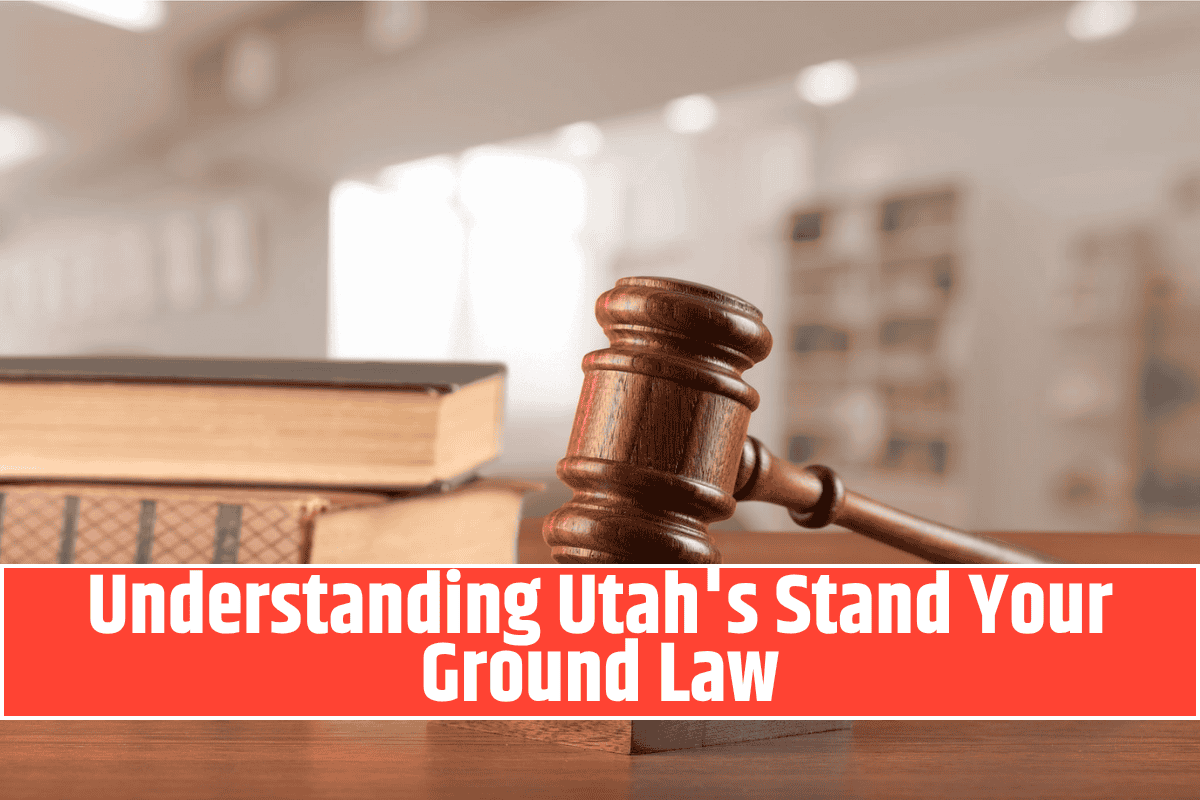Knowing your rights in dangerous situations is important, especially when it comes to self-defense laws. In the state of Utah, the law supports your right to protect yourself and others, but there are clear legal boundaries on when and how you can use force, especially deadly force.
This guide explains Utah’s Stand Your Ground law, Castle Doctrine, and what counts as justified self-defense.
What Is Self-Defense Under Utah Law?
According to Utah Code §76-2-402, self-defense is permitted when a person reasonably believes that using force is necessary to stop someone else’s immediate and unlawful use of force.
However, the force used must be proportional to the threat. This means you cannot use more force than necessary for the situation.
In simple words: If someone is about to harm you, you can defend yourself—but the response must match the level of danger.
When Can You Use Deadly Force?
Deadly force (force that can cause death or serious injury) is only allowed in specific situations under Utah law. You can use deadly force if:
You reasonably believe it is needed to stop death or serious harm to yourself or others.
You are preventing a forcible felony, such as murder, rape, robbery, or aggravated assault.
You are defending your home under Utah’s Castle Doctrine.
Utah’s Castle Doctrine: Defending Your Home
Utah follows a Castle Doctrine, which means you are allowed to use force to defend your home from intruders. Under Utah Code §76-2-405, if someone unlawfully enters your house or tries to break in forcefully, and you believe they want to harm you or your family, you are legally allowed to use deadly force.
Unlike some states, Utah does not require you to retreat inside your own home. You have the right to stand your ground and protect yourself.
What Is Utah’s Stand Your Ground Law?
Utah is officially a Stand Your Ground state. Under Utah Code §76-2-407, you are not required to retreat, even in public, if:
You are in a place where you have the legal right to be.
You are not engaged in criminal activity.
You are not the one who started the confrontation.
You reasonably believe that using force is necessary to stop harm.
If all these conditions are met, you are protected by law if you act in self-defense—even without trying to escape first.
When Self-Defense Does Not Apply
Self-defense laws are not unlimited. You cannot claim self-defense in Utah if:
You started the fight (unless you tried to back out and were attacked again).
There was no real or immediate threat.
The force used was too much for the situation.
You acted in revenge, not in protection.
What Happens After Using Self-Defense?
Even if you believe you acted correctly, law enforcement will still investigate. Officers and prosecutors will consider:
Was the threat immediate and real?
Was your response proportional?
Were you legally allowed to be at the location?
If you’re involved in a self-defense situation, it’s best to talk to a criminal defense lawyer before giving any detailed statement to the police.
Utah’s Stand Your Ground and Castle Doctrine laws give you the right to protect yourself and others—but only under strict legal conditions. You don’t have to run away if you’re in danger, whether at home or in public, as long as you are not the aggressor and not committing a crime.
Understanding your rights and responsibilities under these laws can help you make smart, legal decisions if a dangerous situation ever arises. If such a situation occurs, always consult a lawyer immediately.












